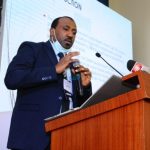
By Emmanuel Afonne
The Centre for Fiscal Transparency and Integrity Watch (CeFTIW) says it has developed a portal that hosts information on grand corruption-related probes in the country made public between 1999 and 2022.
A statement on Sunday by Mr Victor Agi, Head, Public Affairs, CeFTIW, stated that the effort was to deepen democracy and enhance transparency in the countrys democratic process.
Agi said the portal would be unveiled for public viewing on Aug. 31 in Abuja.
We are therefore concerned, first and foremost about the abuse of constitutional processes in which case probe panels are constituted and abandoned halfway.
Agi said that the move was also to draw the attention of all concerned stakeholders to the litany of abandoned probes for them to take advantage of the portal and data to demand transparency and accountability from the leaders.
One of the oversight functions performed by the three arms of government is the constitution of probe panels to check, investigate and scrutinise the actions and inactions of government Ministries, Departments and Agencies (MDAs), and public office holders.
These probes are often also constituted to ensure that laws are adequately implemented, to curb power abuse and prevent public sector corruption.
The non-implementation of some probe committees reports in the country is a source of concern to the centre.
The continuous defiance of government institutions and public officers to extant laws in this regard will continue to weaken our democratic processes.
He said it was common to come across media reports of probe panels constituted by different authorities across the three arms of government to investigate allegations of grand corruption and misconduct by public service holders.
According to Inhim, in most cases, the probe panels have clear terms of reference, but Nigerians are left in the dark about their findings, actions and when their reports are concluded and submitted.
He urged lawmakers at the federal and state Houses of Assembly to be diligent in their constitutional assignments, having derived their oversight powers from the 1999 Constitution in sections 88, 89, 128 and 129.
The Constitution empowers the National Assembly to set up investigative panels on any matter or thing with respect to which it has powers to make laws in order to expose corruption.
It also has powers to expose inefficiency or waste in the execution or administration of laws within its legislative competence and in the disbursement or administration of funds appropriated by it
This is also true of the judiciary, led by the National Judicial Commission, which has also severally constituted probe panels as a self-cleansing mechanism to deter lawyers and legal practitioners from acting corruptly and punishing infractions.
He, however, urged the executive arm of government not to disregard sanctions and recommendations of probe panels in order not to make a charade of the constitutional process. (NAN)(www.nannews.ng)
===========
Edited by Idris Abdulrahman
Source: NAN News